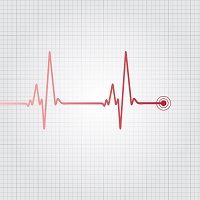Article
Deep Learning Algorithm Provides Earlier Heart Disease Detection
Author(s):
Artificial intelligence could provide physicians with easier, quicker measures of coronary artery calcium.

A deep-learning algorithm can be an effective and accurate tool to detect heart disease in patients getting screened for lung cancer, according to new research.
Investigators at Massachusetts General Hospital’s Cardiovascular Imaging Research Center (CIRC) and the Artificial Intelligence in Medicine (AIM) program at Brigham and Women’s Hospital developed a method using deep learning to automatically measure coronary artery calcium on chest CT images.
The deep-learning coronary artery calcium score performed similarly to human readers over 6-plus years, showing a link between the calcium score and cardiovascular death in that time. The findings indicate a potentially improved process to care for at-risk patients, lead author Roman Zeleznik, MSc, BSc, said.
“If our tool detects a lot of coronary artery calcium in a patient, then maybe we can send that patient to a specialist for follow up,” Zeleznik, from the AIM at Brigham and Women’s Hospital and Dana-Farber Cancer Institute, said in a statement.
Typically, CT scans are used to diagnose lung cancer, but coronary artery calcium, which measures plaque in the arteries, is also visible and helps physicians decide who needs cholesterol medications.
Zeleznik and colleagues developed the deep-learning algorithm with 1600 cardiac and chest CTs. The coronary artery calcium was measured manually in each CT. The algorithm previously showed strong results in clinical trial patients with stable and acute chest pain.
After developing the artificial intelligence (AI) model, investigators tested the technology on nearly 15,000 CT scans from heavy smokers aged 55-74 years old who participated in the National Institutes of Health’s (NIH) National Lung Screening Trial.
The researchers categorized high deep-learning calcium scores as coronary artery calcification more than 300. Moderate was defined 101-300; low as 1-100; and very low as 0. When done manually, these measurements require certain software, and therefore more time from the physician to interpret the results.
All-cause (7.3%) and cardiovascular (1.9%) mortality was assessed over a follow-up of 6.5 years. There was also an association between the deep-learning calcium score and all-cause mortality at high (HR 2.9; 95% CI, 2.4-3.5), moderate (HR 1.9; 95% CI, 1.5-2.3), and low (HR 1.3; 95% CI, 1.1-1.6) (P <.01).
There was also an association between the calcium score and cardiovascular mortality among high (HR 6.6; 95% CI, 4.3-10.3), moderate (HR 3.8; 95% CI, 2.3 - 6.1), and low (HR 2.2; 1.4 - 3.6) (P <.001) patients.
Along with the practice-changing findings, investigators noted the AI system is a more efficient, quick practice than standard screening, and could also help generate clinically relevant information from chest scans for a large population of patients.
“This is an automated way to extract that information, which can help patients and physicians make decisions about preventive therapy,” co-senior author Michael Lu, MD, MPH, director of AI in the CIRC at Massachusetts General Hospital in Boston, concluded.
The study, “Deep-Learning Quantification of Coronary Calcium on CT and Mortality in the National Lung Screening Trial,” was presented Tuesday at the Radiological Society of North America.





